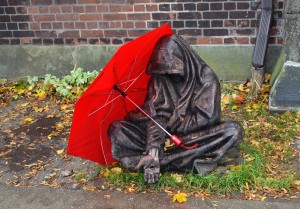 A Christmas apology, and the seeds of hope
A Christmas apology, and the seeds of hope
By Rachel Held Evans, December 23rd, 2013 03:29 PM ET
This week we celebrate Christmas, and as a Christian, I want to say I’m sorry.
I’m sorry that this season has become about fights over manger scenes on public property, about complaining when clerks say, “Happy Holidays,” instead of “Merry Christmas,” about rampant commercialism and faux persecution.
I’m sorry that Christians in the United States can be so entitled when we’ve long enjoyed majority status, when we can be so blind to our own privilege.
It is ironic, really, because in the church calendar, the seasons of Advent and Christmas call us to reflect upon and celebrate what Christians believe was the most radical act of humility of all time – the incarnation.
The doctrine of the incarnation holds that the God of the universe, in his love for humanity, emptied himself of his power and became human, like us, in the form of Jesus.
The word incarnation literally means “to make into flesh” and refers to the apostle John’s teaching that “(t)he Word became flesh and made his dwelling among us” (John 1:14).
“No one has ever seen God,” John explains, but Jesus “has made him known.”
In other words, if you want to know what God is like, look at Jesus –
Jesus, who was born as an oppressed minority in an occupied land,
Jesus who was an immigrant,
Jesus, who surrounded himself with the poor, the sick, the marginalized and the “untouchables,”
Jesus who was criticized by the religious for hanging out with sinners,
Jesus who treated women with dignity and respect,
Jesus who taught his disciples to love their enemies, to give without expecting anything in return, to overcome evil with love,
Jesus who suffered,
Jesus who wept,
Jesus who – while hanging on a Roman cross – said, “Father forgive them, for they know not what they do.”
Quaker theologian Elton Trueblood put it this way: “The historic Christian doctrine of the divinity of Christ does not simply mean that Jesus is like God. It is far more radical than that. It means that God is like Jesus.”
It means that God suffers, God forgives, God fellowships with the poor, God cares for the sick, God loves His enemies.
Even as a lifelong Christian, I struggle with doubts about God. I struggle to make sense of the violence in the world, the violence in the Bible, the violence in my own heart. I don’t have all the answers.
But even when there’s nothing left to my faith but a little seed of hope, that hope is in the incarnation, in the radical teaching that God loved us enough to become like us, and that when God wanted to show us what he was like, God showed us Jesus.
Rachel Held Evans is the author of “A Year of Biblical Womanhood” and “Evolving in Monkey Town.”
http://religion.blogs.cnn.com/2013/12/23/a-christmas-apology-and-the-seeds-of-hope/ or http://cnn.it/K3h8Bz
Photograph of ‘Whatsoever you do’, a sculpture by Timothy Schmalz. It is also referred to as ‘Homeless Jesus’. http://mcfcrandall.wordpress.com/tag/red-umbrella/
